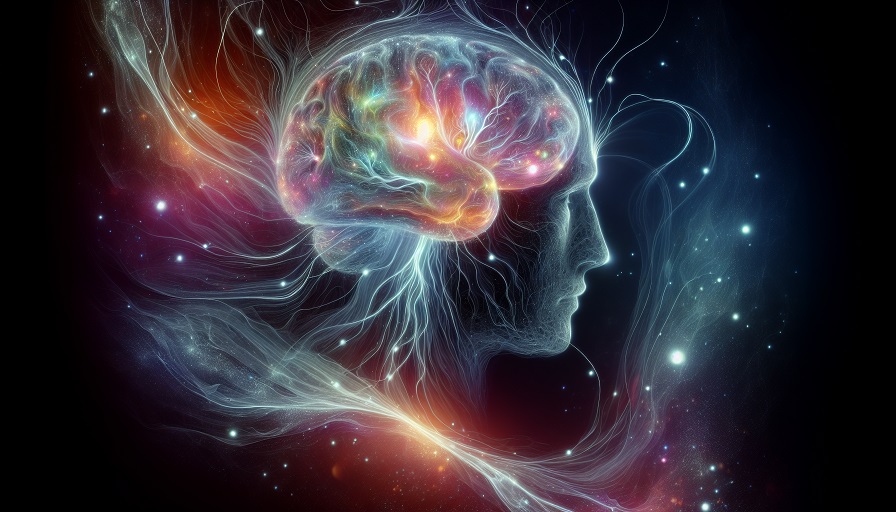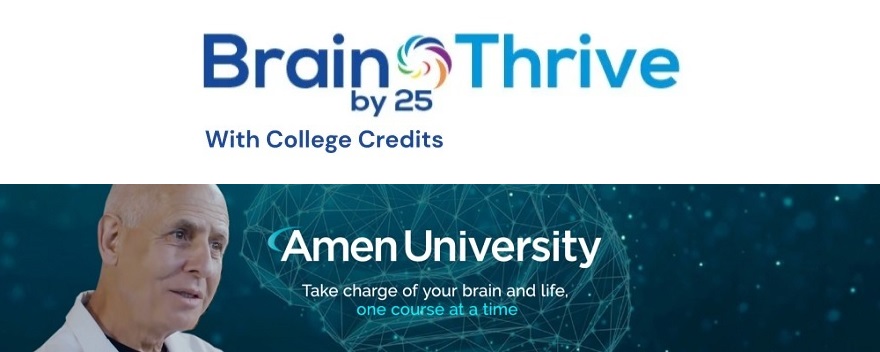
Teen years are full of firsts, first serious exams, first driving lessons, first big friendships and heartbreaks. Underneath all of that, the one thing working nonstop is the brain. Yet most teenagers learn more about the parts of a cell than about the organ that makes every decision and holds every memory.
Teaching teens a few clear brain basics can change that. When young people understand how their brains grow, what helps and harms them, and why certain habits matter, they are better prepared to protect their mental health and build a life that works over time, not just this week.
Contents
Why Teen Brains Deserve Their Own User Guide
The teenage brain is not simply a smaller adult brain. It is still under construction. Some systems mature early, like those that seek novelty and reward. Others, such as long range planning and self control, finish later. Knowing this helps explain why smart teens sometimes make baffling choices.
The Brain Builds From Back To Front
During childhood and adolescence, different brain areas strengthen their connections at different times. Regions deep inside the brain that respond to emotion, reward, and threat tend to be active early. The prefrontal cortex, the area behind the forehead that helps with planning, weighing consequences, and resisting urges, continues to develop into the mid twenties.
This does not mean teens are doomed to act impulsively. It does mean that they benefit from extra practice with pause and think skills, and from adults who help them build those skills rather than only criticizing the missteps.
Use It Or Lose It: Pruning And Practice
One of the most important teen brain facts is pruning. The brain strengthens connections that are used often and trims away those that are rarely used. It is like a garden, paths walked every day become clearer, while unused paths grow over.
For teens, this means that repeated habits become easier and more automatic, whether those habits involve studying, music, gaming, kindness, or snapping at everyone in sight. Understanding pruning can help teens take their daily patterns more seriously.
Brain Basics Every Teen Should Know
Although the brain is complex, there are a handful of basic ideas that most teens can grasp quickly. These concepts give them a framework for daily life choices.
The Brain Runs On Energy And Balance
The brain is a small organ compared to the rest of the body, yet it uses a large share of available energy. It needs steady blood flow, oxygen, and nutrients to work well. Sharp ups and downs in blood sugar, dehydration, or constant lack of sleep make it harder to focus, remember, and regulate emotions.
Teens do not need a long biochemistry lesson. They do need to know that regular meals, enough water, and consistent sleep are not boring rules invented by adults, they are basic brain fuel.
Stress Changes How The Brain Thinks
Short bursts of stress can sharpen attention for a test or a game. Long lasting stress, whether from conflict at home, social pressure, or academic overload, can push the brain into survival mode. In that state, it is harder to think clearly, remember details, or stay calm.
When teens learn that their brain reacts this way, they are more likely to see coping strategies, such as talking to someone, moving their body, or breaking tasks into smaller pieces, as real tools rather than empty advice.
Substances Leave Fingerprints On A Developing Brain
Alcohol, nicotine, cannabis, and other substances interact with brain cells that are still wiring themselves. Regular use in the teen years can interfere with memory, mood, and motivation. This is not about fear slogans, it is about timing. A brain that is still building is more vulnerable than a fully mature one.
Teens who understand this can make more informed choices. Even if they face pressure, they at least know what they are trading in terms of attention, grades, and long term mental health.
Everyday Habits That Shape Long-Term Well-Being
Once teens grasp the basics, the next step is connecting them to daily habits. The goal is not perfection. The goal is a pattern that moves the brain in a healthier direction most of the time.
Sleep As A Study Tool, Not Just Rest
Sleep is when the brain files memories, clears waste products, and resets systems that manage mood and focus. Chronic late nights, all nighters before exams, or sleeping with notifications waking you repeatedly can all chip away at these processes.
Helping teens see sleep as part of studying is often more effective than lecturing them about being tired. A simple guideline, aiming for a regular sleep window and keeping phones out of reach or on do not disturb at night, can have a big impact on mood and grades.
Food That Supports Focus
Food is not only about weight or appearance. It is brain chemistry. Meals that mix protein, healthy fats, and complex carbohydrates tend to provide steadier energy than sugary snacks and drinks. Big spikes and crashes in blood sugar can leave teens jittery, unfocused, or drained.
Practical steps include eating something with protein at breakfast, not skipping meals during busy days, and treating highly processed snacks as occasional extras rather than main fuel.
Movement As Natural Brain Medicine
Exercise is often framed as a chore. For the brain, it is closer to a multi purpose medicine. Regular movement increases blood flow, supports new brain connections, and releases chemicals that improve mood and reduce anxiety.
For teens, that does not have to mean formal sports. Walking, dancing, biking, and simple home workouts all count. The important part is frequency. Even short bursts of movement scattered through the week can help.
Managing Screens Instead Of Letting Screens Manage You
Screens are part of modern teen life. The goal is not to ban them completely. Instead, it is to prevent habits that train the brain to crave constant stimulation and reward. Endless scrolling, late night messaging, and rapid switching between apps can make it harder for the brain to tolerate quiet focus later.
Healthy digital habits might include screen free zones such as the dinner table, set times to check social media, and tech free wind down routines before bed. These limits protect the attention systems that teens need for deep work and real rest.
Teaching Teens To Care About Their Own Brains
Knowing the science is useful, but motivation matters just as much. Teens are more likely to care about brain basics when they can see how these ideas connect to goals they chose themselves.
Linking Brain Health To What Teens Value
Instead of saying, you should sleep more because it is good for you, it can be more effective to say, if you protect your sleep, you will probably remember more for the exam, react faster on the field, and handle stress a bit better. When brain habits are tied to sports, music, gaming performance, social confidence, or future plans, they feel relevant.
Asking questions like, what matters most to you this year, and then exploring which brain habits support that goal, is often more powerful than handing out a list of rules.
Helping Teens Build Their Own Brain Plan
One useful exercise is to ask teens to create a simple brain plan. This might include:
- One sleep habit they are willing to try for the next month.
- One food or drink change that feels realistic.
- One kind of movement they can commit to most days.
- One specific limit around screens, such as no phone in bed.
The plan should be written by the teen, not imposed. Adults can offer suggestions, but the choices work best when they feel owned by the young person.
Modeling Brain Friendly Choices As Adults
Teens watch what adults do. When parents, teachers, and coaches care for their own sleep, manage stress openly, set reasonable tech boundaries, and admit when they are overwhelmed, they send a quiet message that brain health is for everyone, not just for kids.
Small shared habits, such as family walks, device free meals, or shared quiet times, can reinforce the idea that brain care is a normal part of life, not a temporary project.
Brain Basics As A Foundation For Lifelong Well-Being
No teen will make perfect choices, and no parent or educator can control everything a young person faces. The goal is not flawless behavior. It is a foundation. When teens understand the basics of how their brains work and how daily habits shape long term patterns, they carry a kind of internal compass.
That compass does not remove every obstacle, but it can guide decisions about substances, sleep, relationships, and stress in a healthier direction. Over years, those small shifts add up. The result is a greater chance of steady mood, clearer thinking, and a life that fits who they are and what they hope to become.

